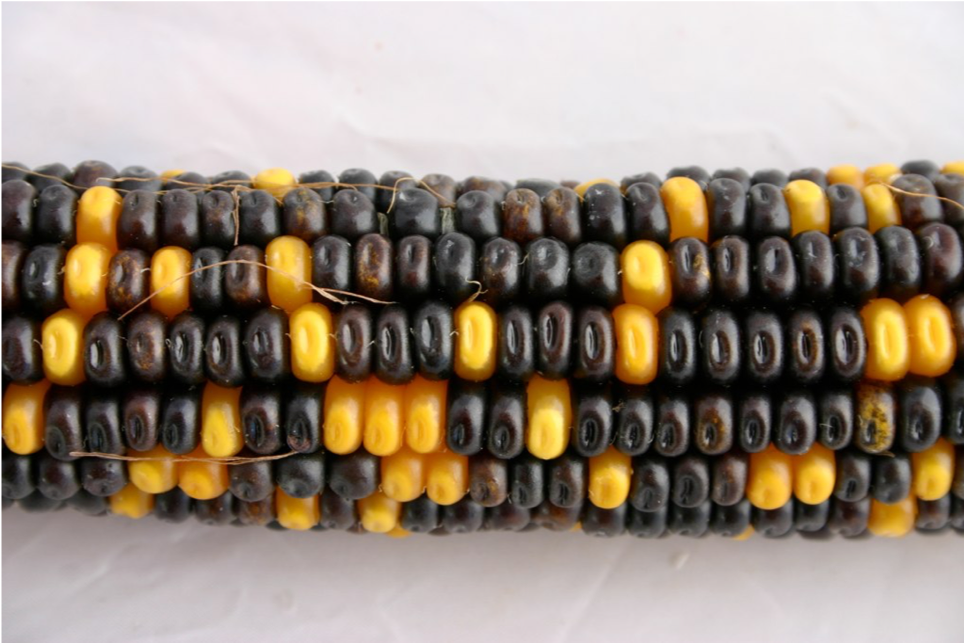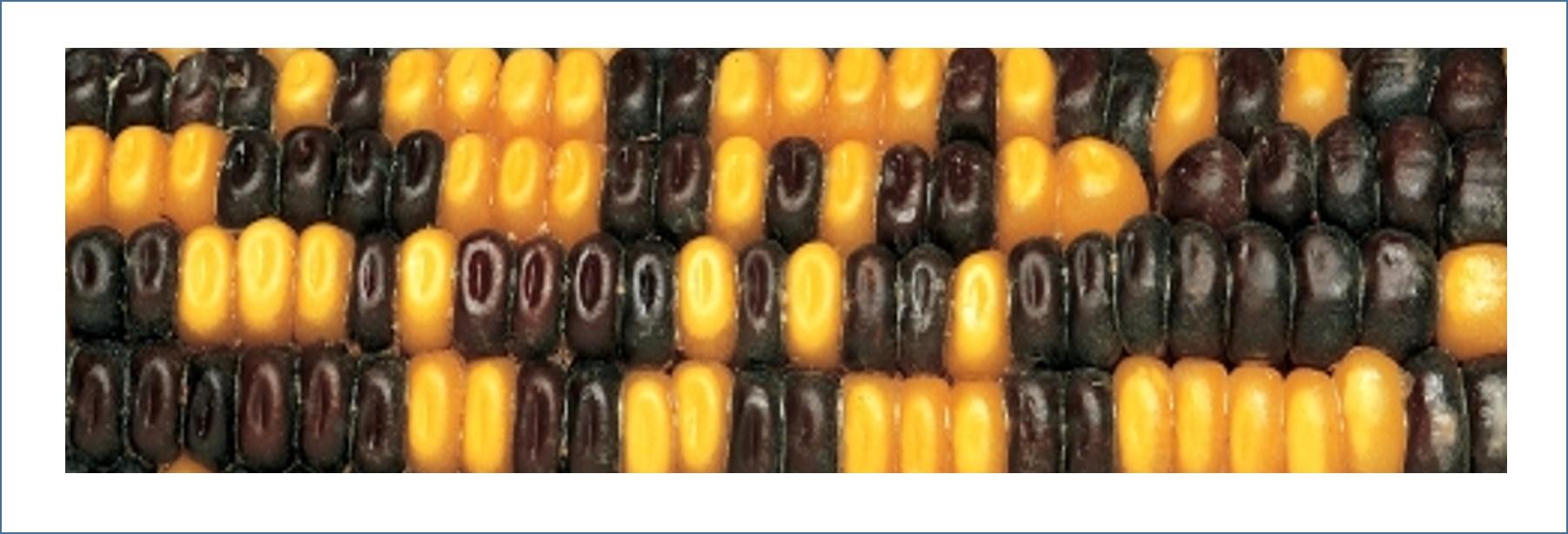(Solved): please help with all of the questions! ALL INFORMATION GIVEN Materials: Series 1 corn cobs (simulat ...
please help with all of the questions! ALL INFORMATION GIVEN
Materials:
- Series 1 corn cobs (simulated data for all corn cobs will be given in the lab procedures below)
Procedures:
Step 1 - Sampling a genetic cross
(Simulated data provided below)
Corn color is controlled by one gene which determines whether the kernels will be purple or yellow.

The seeds, which are the progeny from several crosses between the same parents, are the kernels on the ears. We will use a random sample technique to determine the frequency of the two colors (the phenotypes). After the frequency has been determined, it should be possible to determine the genetic make-up (the genotypes) of the parents in each cross.
STEP #2 In lab we would have performed the following steps:
- Select one of the ears marked "series one." Count all of the kernels in a single row and record the numbers that are yellow and purple. Record your data into your lab manual for each row as its own sample #. (e.g. "sample 1" would be from the first row of corn kernels). The column labeled "#Both" should contain the total number of kernels from the row counted.
- Repeat the process for ten separate rows. Each row will be its own "sample" number 1-10
Here we will use this simulated data table for your
kernel counts for each row (enter into your lab manual)
Series 1 ear simulated data
| Sample (row) # | # Purple | # Yellow |
| 1 | 32 | 11 |
| 2 | 27 | 9 |
| 3 | 35 | 10 |
| 4 | 38 | 11 |
| 5 | 26 | 10 |
| 6 | 19 | 6 |
| 7 | 25 | 13 |
| 8 | 35 | 8 |
| 9 | 31 | 9 |
| 10 | 28 | 17 |
| Totals | 296 | 104 |
STEP #3 - Determine the genotypes of the parent plants
- Use the following symbols for the alleles for corn
color: P = purple (dominant); p = yellow (recessive). A homozygous
kernel could be either PP (purple) or pp (yellow), while a
heterozygous kernel would be Pp (purple).
The simplest way to determine parent genotypes is by trial and error using the Punnett square method. Make a guess a potential parental cross (e.g. Cc x cc) and construct a Punnett square using the potential cross and calculate the genetypes from that cross. When you find the right parent genotypes, the phenotypic ratios predicted by the Punnett square will match (approximately) the phenotypic ratios that you actually observed.
Example: Here is the Punnett square for the monohybrid cross (Cc x cc) given above:
Punnett squareParent A
Parent B
P
p
P
PP
Pp
p
Pp
pp
Genotype frequencies
PP = 1 out of 4 = 1/4 = 0.25
Pp = 2 out of 4 = 2/4 = 0.5
pp = 1 out of 4 =1/4 = 0.25
Phenotype frequencies
Purple (PP + Pp) = 3 out of 4 = 0.75
Yellow (pp) = 1 out of 4 = 0.25
Phenotype frequency: 3 purple to 1 yellow = 3:1
- These predicted frequencies match what we counted on our cob above. We can say with certainty that the parents were Pp x Pp.
STEP #4 Calculating Genotypic, Phenotypic and Allele Frequencies:
- Suppose in the next step we perform what is called a test cross with two corn plants.
- One plant has the genotype Pp, and one plant has the genotype pp. (Pp x pp)
- Draw a Punnett square of this cross so you know the predicted genotypes of the offspring.
- Assume the cob of corn produced from this cross is shown below. There are 4 rows of offspring and exactly 100 corn kernels in this photo.
- For the Lab assignment you will need to use the image
above to calculate the genotypic, phenotypic and allele frequencies
from this cross. To do this you must first figure out the genotypes
of the corn kernels above (remember the parents were Pp x pp). Then
you must count the purple and yellow kernels (THEY TOTAL EXACTLY
100). Use the following formulas to calculate each frequency. The
assignment will require that you enter the frequencies as fractions
(example: 3/100).
- Genotypic frequency of PP, Pp, and pp.
- Genotypic frequency of PP = # of PP individuals / 100
- Genotypic frequency of Pp = # of Pp individuals / 100
- Genotypic frequency of pp = # of pp individuals / 100
- Phenoptyic frequency of Purple and
yellow.
- Phenotypic frequency of Purple = # Purple individuals / 100
- Phenotypic frequency of Yellow = # Yellow individuals / 100
- Allele frequency of P and p
- Allele frequency of P = ((# of PP individuals x 2) + (# of Pp individuals)) / (2 x # of individuals)
- Allele frequency of p = ((# of pp individuals x 2) + (# of Pp individuals)) / (2 x # of individuals)
- Genotypic frequency of PP, Pp, and pp.
QUESTIOns are below
Using the second corn image (of 100 kernels) on Module #10: Mendelian Inheritance in Corn (Laboratory) (Enter your answer as a fraction such as 10/100. Do not add spaces or any other information!)
what is the genotypic frequency of PP.
what is the genotypic frequency of Pp?
what is the genotypic frequency of pp.?
what is the phenotypic frequency of purple?
what is the phenotypic frequency of yellow?
what is the allele frequency of P?
what is the allele frequency of p?
